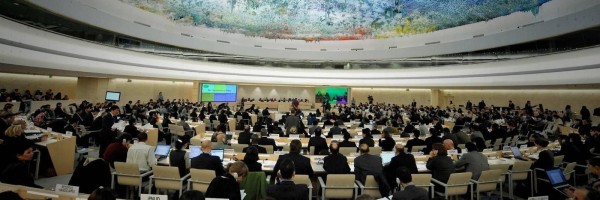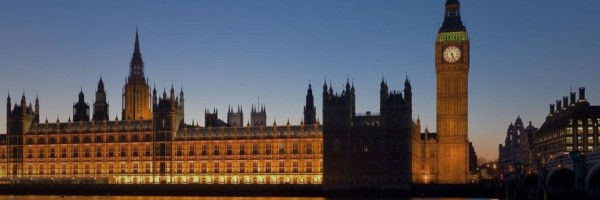As an act of solidarity against injustice, and so the world will learn the truth:
Let’s keep the names of Saudi human rights heroes constantly before the world – and in the face of the Saudi authorities
Worse than injustice itself, and far more dangerous, is that injustice should become accepted as normal, and so become pervasive and entrenched. This happens when it goes unchallenged, or when people are unaware of it, or at least of its true scale – which is exactly what is happening now in Saudi Arabia.
Everyone knows that the Saudi authorities are utterly despotic; there is no way to participate politically in Saudi Arabia, or even to monitor the government’s performance and hold it to account. It is not permitted to express opinions, nor is there any freedom of assembly, and there is no question of being allowed to set up independent civil society institutions. There is, moreover, no independent judiciary, and no separation of powers: everything depends on the will of the king or those authorised to act on his behalf. There is no constitution and no parliament or any institution to represent the people; no legal or institutional structures to provide legal safeguards and allow people to know their rights and obligations. There are no free and independent media to convey the truth, and those who try to criticise or expose the truth are setting themselves against officialdom. Those who fall out of favour with the authorities may find themselves reduced to poverty, struggling to earn a living and provide for their families, by being dismissed from their jobs, prevented from working, or obstructed in running their businesses for failing to praise the government. By means of repression and intimidation the authorities have been able to manipulate domestic opinion into singing their praises and supporting every government decision, however damaging. At the same time they have managed to dupe the outside world and present a picture totally at odds with what really goes on at home: tyranny, repression, poverty, unemployment, corruption, and destruction of the social fabric by the cultivation of extremism, racism and sectarianism. These things have been written about in numerous reports by independent observers, following cautious and tentative contacts with people inside the country, but these efforts are dwarfed by the huge multibillion-dollar campaigns carried out by the authorities with the help of the world’s top PR companies.
Human rights activists are the one impartial voice in all of this, focusing simply on people and their rights. The existence of human rights activists benefits everyone, and gives each member of society an equal chance, because the activists monitor and speak out against all abuse, regardless of who is responsible, and they call for free speech for everyone. They act as a safety valve for society as a whole, which is why the Saudi authorities have suppressed them so heavily, and also why we have such a heavy obligation toward them.
So the work of human rights activists is vitally important. They provide the only window of opportunity for the truth to be revealed, through their honest and credible communications with outside organisations and media, independent of the official government line. The authorities, however, are certainly aware of this, which is why they come down with an iron fist on anyone whose work is discovered. They blacken his or her reputation, sentence them to harsh punishments and use the Counter-terrorism Law against them, and a court (the Specialised Criminal Court) that was supposedly established to handle terrorism cases. They have frightened anyone attempting to pursue this noble calling, and the number of activists has dwindled. Most of them have disappeared behind bars, while others have shifted their attention to other matters for fear of the government’s wrath. We are now finding it hard to draw more young people into supporting rights and freedoms. And so, with no one to safe to criticise, and no voice to be heard except that of the government and those who support it or fear it, the truth of what goes on inside Saudi Arabia gets lost; repression and tyranny go unchecked. People come to accept this as normal, and the truth disappears from sight.
Meanwhile, the activists themselves are forgotten – the heroes who have paid a high price for defending human rights remain forgotten behind bars. Some people may even come to believe the government’s version of the story, that they are terrorists, or saboteurs of the country’s development, or agents of the West who have brought the country into disrepute.
The working environment in Saudi Arabia is not one that tends to create heroes as in other countries, where heroes stand up to injustice in a sympathetic social milieu, with media and news coverage that gives them their due, and they are treated as heroes for what they have done and the sacrifices they have made. Saudi Arabia’s heroes, however, have made even greater efforts and sacrifices, with little popular support and little global news coverage, with the result that they achieve very little recognition.
When an activist, man or woman, is arrested, we NGOs immediately demand their release, as if demanding that the authorities simply correct an error rather than asking them to take a different view of these heroes. We get the media, institutions and national governments, and ourselves, working together in the first few days after the arrest, and then we all ease up once the authorities have inflicted some harsh sentence on the activist. After that our demands and pressure are confined to asking that the detainee be allowed visits and not be tortured or mistreated, and for improvements in their living conditions. It’s as if the fact of their arrest and detention is now accepted, and as we scale back our demands the authorities ramp up their oppression. They experience some international pressure at the time of the arrest, but then the pressure goes away; the authorities have rid themselves of the activists behind bars without having to pay any price, thanks to their lavish image-building drive abroad and their silencing of domestic opinion.
ALQST therefore believes we must now start to operate differently, and not confine our activity to breaking news and urgent actions, forgetting longstanding abuses, nor make only modest demands, allowing the authorities to carry on with business as usual. To do this we have to promote these activists as internationally recognised heroes and role models for the younger generation, so as to instil in young people the ideals of resisting injustice, promoting rights and loving justice. And so our message, to any forum where activists are recognised and honoured, must be that they should honour the human rights heroes in Saudi Arabia and keep their names alive, so as to keep alive also the fact of their oppression. The world should know who is suppressing the truth, and not allow this to be covered up by his PR campaigns and political connections hiding behind oil and arms deals.
ALQST calls on partner NGOs, institutions, national governments and human rights supporters all over the world, both individuals and groups, to work together on systematic campaigns to nominate these heroes for international prizes like the Nobel Peace Prize, Sakharov Prize for Freedom of Thought etc., to name streets after them, write books telling their stories, or immortalise them in film, in ways that can enlighten the world, promote the values of justice and help to end tyranny and injustice. They have spent their lives doing what they believed in, as a result of which they are now behind bars. There are the members of ACPRA, the Saudi Civil and Political Rights Association:
- Dr Abdullah al-Hamid, who has been in prison several times and who, each time he came out of prison, went back to calling for a constitution and demanding human rights;
- his colleague Dr Mohamed al-Qahtani, who held a senior position but decided to work with ACPRA and call for an end to the authorities’ abuses and brutality;
- Mohamed al-Bejadi, who has been imprisoned three times, and who, when the authorities asked if he had any family members being held in detention, replied that all who had suffered injustice were his family;
- Abdulaziz al-Shubaily and
- Fawzan al-Harbi, who brought court cases on behalf of more than 100 victims of injustice who had no one to take up their cases; and
- their colleagues Dr Abdulkarim al-Khodr,
- Abdulrahman al-Hamid,
- Issa al-Hamid and
- the recently released former judge Suleiman al-Rashoudi.
- lawyer Dr Ibrahim al-Mudaimeegh, who defended prominent Saudi human rights activists and prisoners of conscience in court;
- Professor Aziza Youssef, Saudi Arabia’s best known defender of women’s rights;
- Professor Eman al-Nafjan, a prominent activist and writer and leading theorist of women’s activism in Saudi Arabia;
- Loujain al-Hathloul, well known for her role in the movement campaigning for women’s right to drive, who used her celebrity to speak out in defence of human rights; and
- Professor Mohamed al-Rabiah.




